Our CBD Experience with Guide Dogs Victoria - A Day In The Life of the Visually Impaired
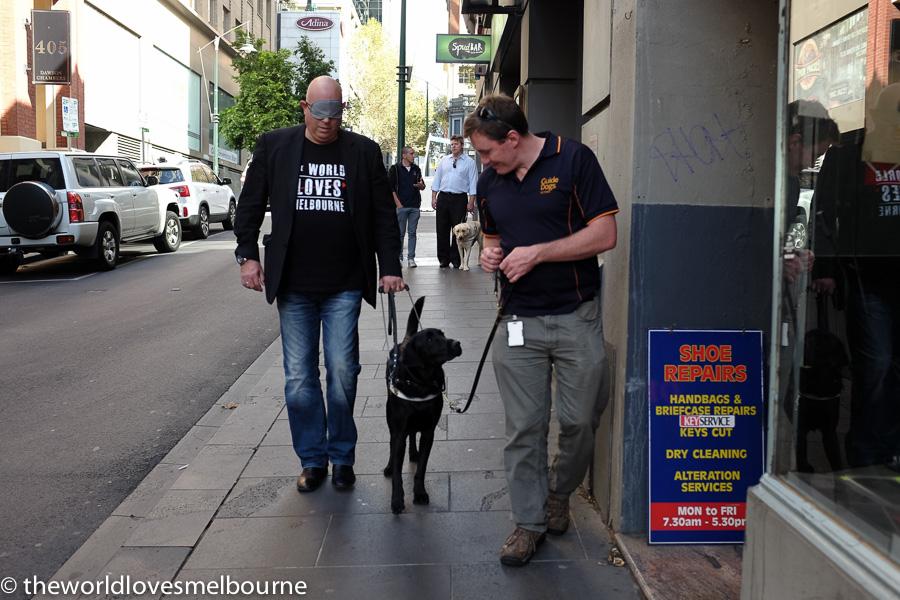
International Guide Dog Day is on April 29 and The World Loves Melbourne was privileged to have our own experience in the CBD with Guide Dogs Victoria. We were blindfolded and given a Guide Dog called Warren to negotiate city streets of the Melbourne CBD. We were given a new perspective on what it's like to be visually impaired through this experience.
Survey results announced by Guide Dogs Victoria show that two thirds of Guide Dog handlers experience some kind of discrimination when it comes to accessibility, which is far too high. For example cafe and restaurant owners have been known to refuse entry to the visually impaired or, as we were told, put in second rate seating say near the toilets. Guide Dog Handlers typically carry a card with the Disability Discrimination Act spelt out for anyone to read. Handlers carry the card to educate and self-advocate, not as much to challenge. Not only the Discrimination Act but Handlers typically carry assistance animals legislation.
Launched to coincide with International Guide Dog Day, the national survey of more than 200 Guide Dog handlers found that Victorian handlers are often questioned or denied access when attempting to enter places like supermarkets, taxis, cafes and restaurants, but their experiences with public transport services were improving.
According to the research, Victorian Guide Dog handlers experience the highest levels of unfair treatment, followed by New South Wales and the Australian Capital Territory.
Guide Dogs Victoria CEO Karen Hayes said the statistics were a result of a lack of knowledge and awareness among Victorians when it comes to access rights of Guide Dogs and trainee dogs.
“Guide Dogs and Guide Dogs in training are legally permitted to accompany their handlers just about anywhere (except inside a hospital operating theatre and certain areas of zoos).
“While most Victorians are generous in providing open access to people accompanied by their Guide Dogs, not everyone is fully aware of their legal obligations,” said Ms. Hayes.
The research showed that 46 per cent of Guide Dog handlers in Victoria have been denied access or questioned when attempting to use a taxi, 29 per cent when entering a café or restaurant, and 21 per cent in a shopping centre or supermarket.
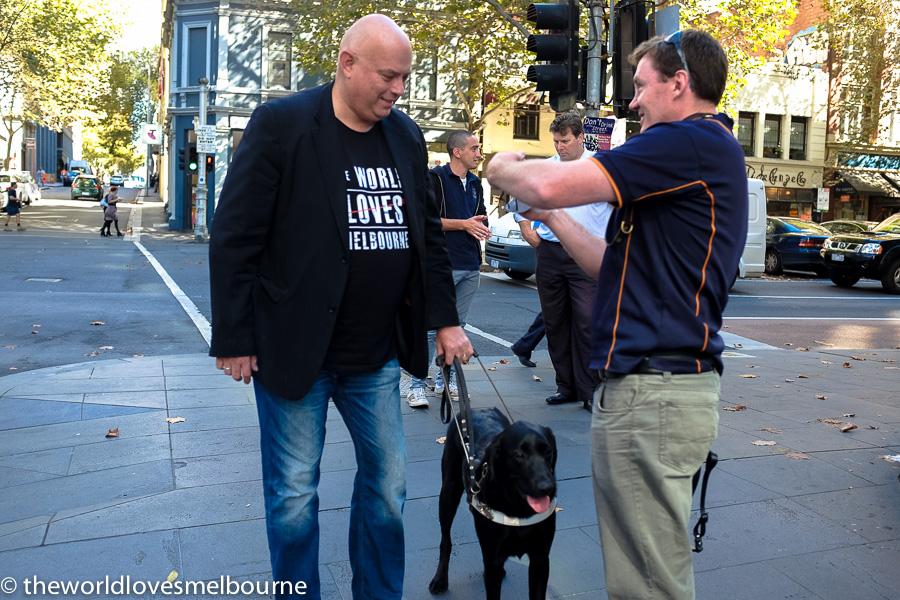
The area where challenges with access are improving is the public transport sector with more than one third of Victorian Guide Dog handlers (37 per cent) citing an improvement in their commuting experience over the last twelve months.
“Many of our Guide Dog consumers take public transport to get around, so it’s pleasing to see positive experiences are on the rise. Guide Dogs enable people who are blind or vision impaired to live independently, which makes it even more vital that they can access not only public transport, but all areas.
“As a community, we need to recognise how important these loyal and hardworking animals are to their vision impaired handlers, and that they have equal access rights like the rest of us.”
Apart from city life Guide Dog Handlers face discrimination from some Getaway venues who insist they pay extra for their dog as a "pet". Of course these dogs are not pets but working dogs assisting the visually impaired.
Guide Dogs Victoria, who are celebrating their 50th anniversary, are a wonderful organisation that assists the visually impaired with the availability of Guide Dogs. It costs around $35,000 to breed and train a Guide Dog and most of the funding is dependant on the public. Each dog is raised normally as a puppy, then undergoes up to 2 years of training. After that the Guide Dogs and their Handlers undergo 5 weeks of intensive training and bonding, with a series of follow ups from Guide Dogs Victoria.
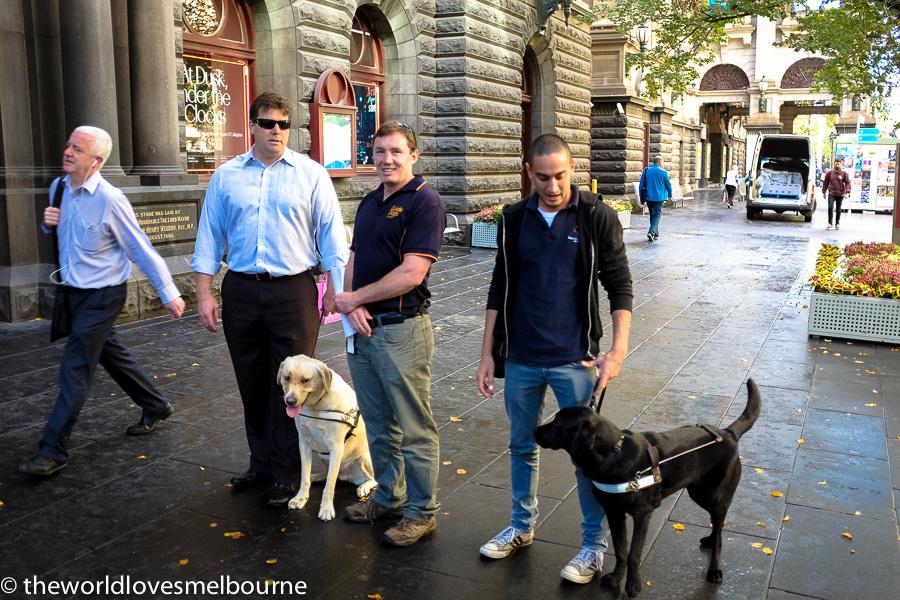
We were privileged to meet David (visually impaired and a Disability Consultant) and his Guide Dog Oliver. Also present was Trainer Eddie from Guide Dogs Victoria and a Student Trainer Luca from Malta.
David told us that public transport was improving in Melbourne in terms of accessibility for the visually impaired. There are still issues with taxi drivers who refuse to stop for those with a Guide Dog, and education of drivers is paramount. Level access tram stops have made access more improved as it provides access to wheelchairs, prams etc.
Installation of audio tactiles as well as directional tactiles on the pavements have been an excellent improvement - but there is still more advancement to be made to fit out the whole city with these aids.
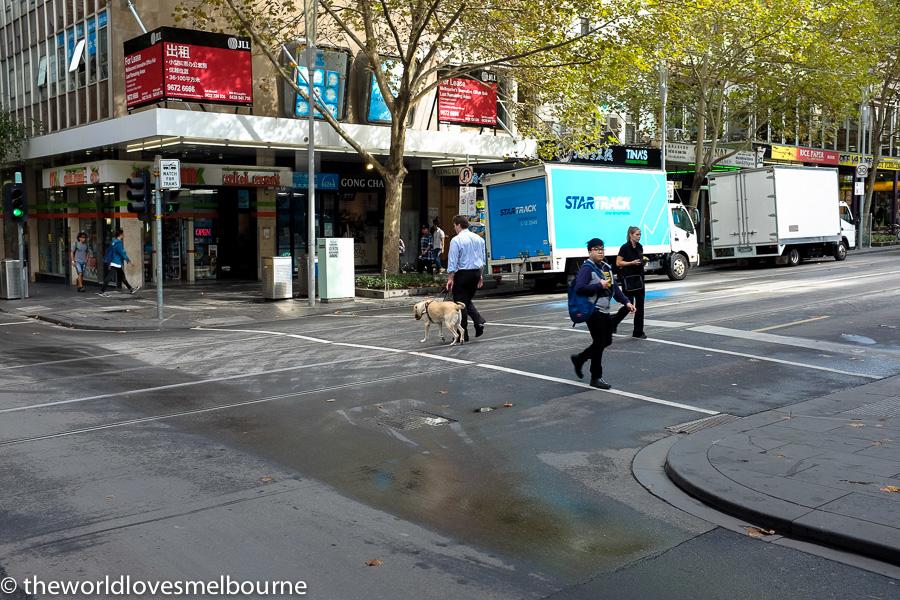
David can be seen above strolling across Swanston St with Oliver his Guide Dog, (note the audio tactiles and tactiles visible here on the edge of the footpath at each end of the intersection). David made his way through Melbourne at a fair pace and we couldn't keep up. The larger dog helps in David's case, keeping tight and allowing for width needed. On Little Bourke St David and Oliver were confronted by a dog in the back of a tradie's ute stopped at the lights. The dog seemed aggressive to The World Loves Melbourne but David and Oliver sailed through without incident.
One of the biggest problems is dogs off the leash and dogs on an extended leash. Even in the city! The Guide Dogs don't give off the signal to other dogs that they normally would - as they are working - and try to avoid conflict.
People can help by keeping their dogs on leash (unless in a designated off leash area) and giving Guide Dogs space when they see a Guide Dog approaching.
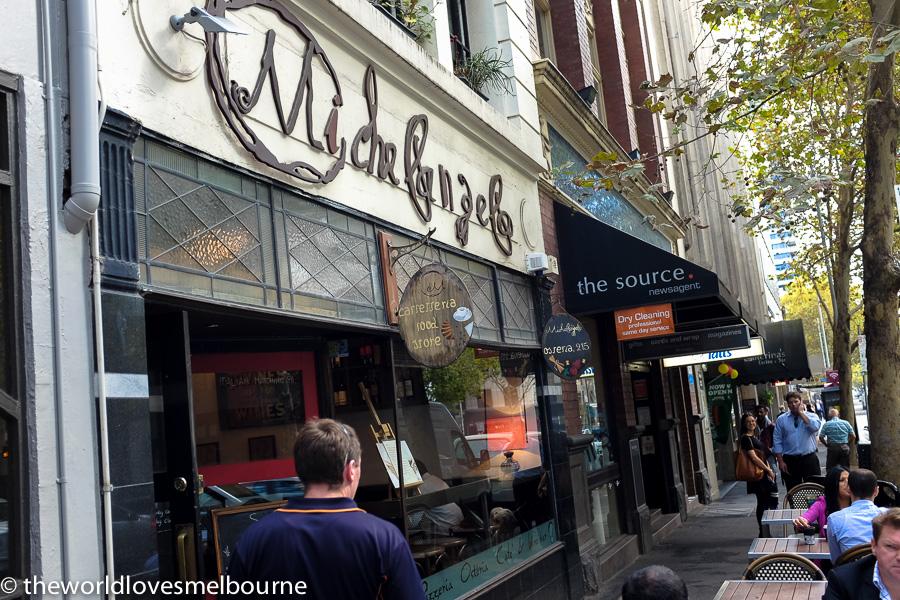
We arrived at Michelangelo's on Queen St to enjoy a coffee and chat some more about disability access.
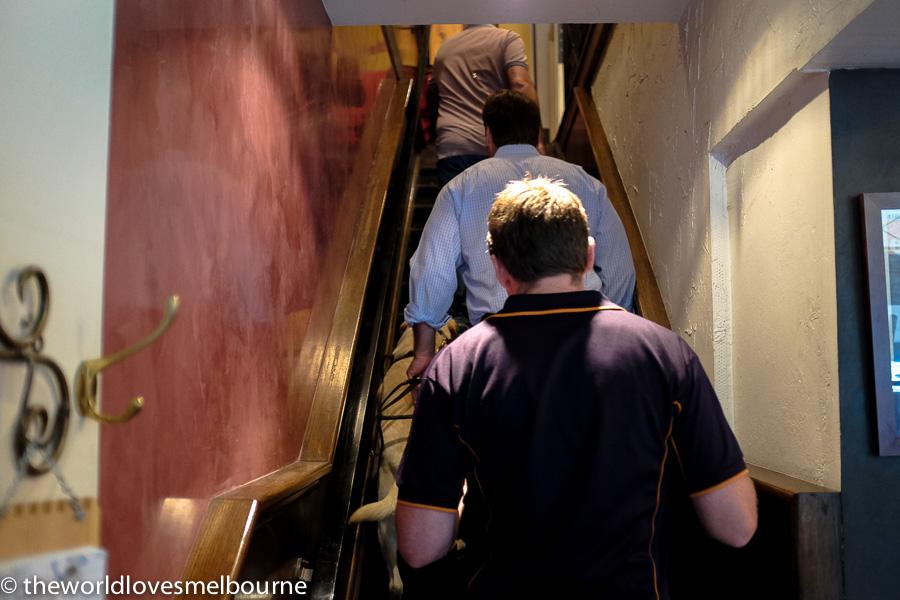
We admired the way David made his way up the stairs of the cafe with Oliver.
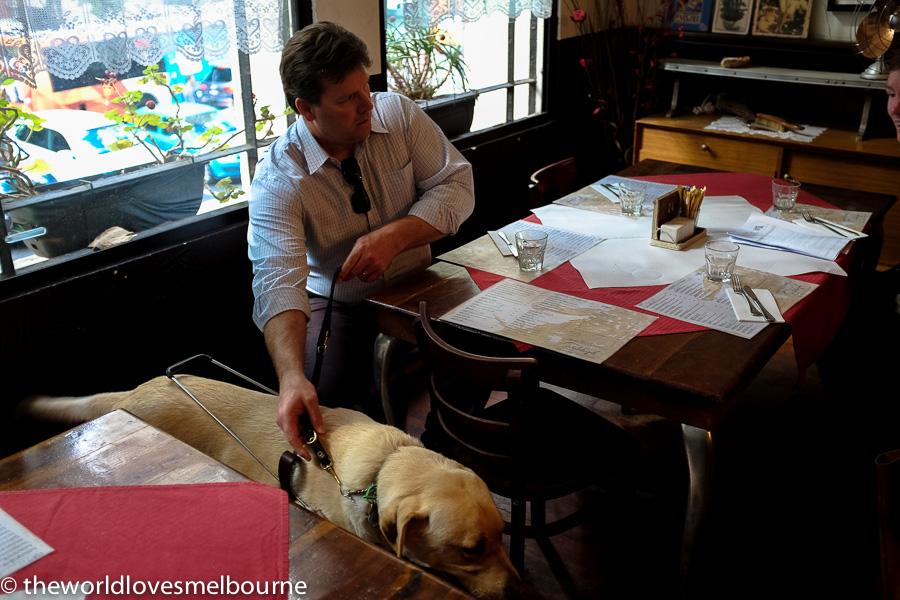
Oliver settles down next to David at the cafe. David and Oliver need space and cafes and other venues need to be accommodating as they were at Michaelangelo's.
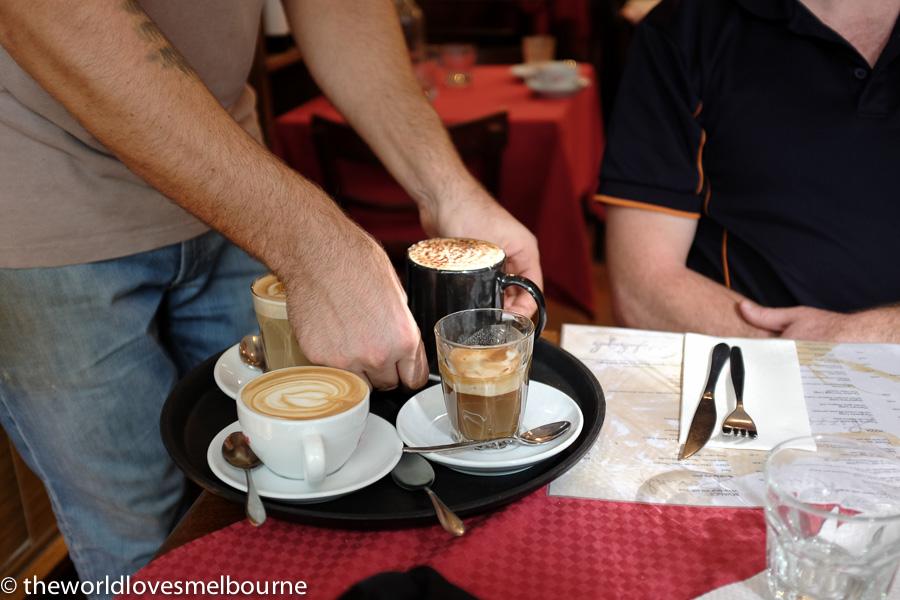
Michaelangelo's on Queen St had a great attitude to the visually impaired, and greeted David on his arrival. Because of this attitude David frequents this cafe in the CBD.
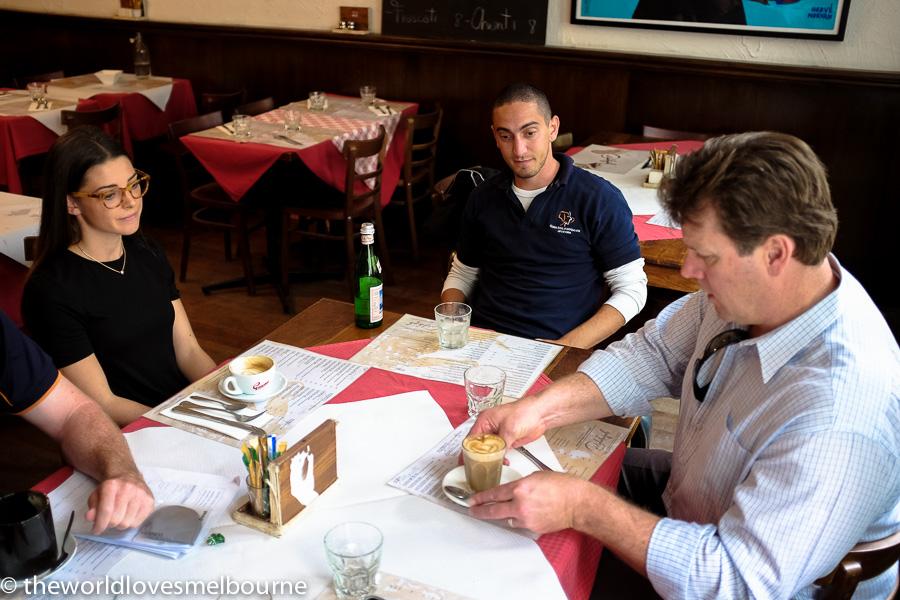
David negotiates his hot latte. We were joined by the delightful Georgia from Keep Left Agency.
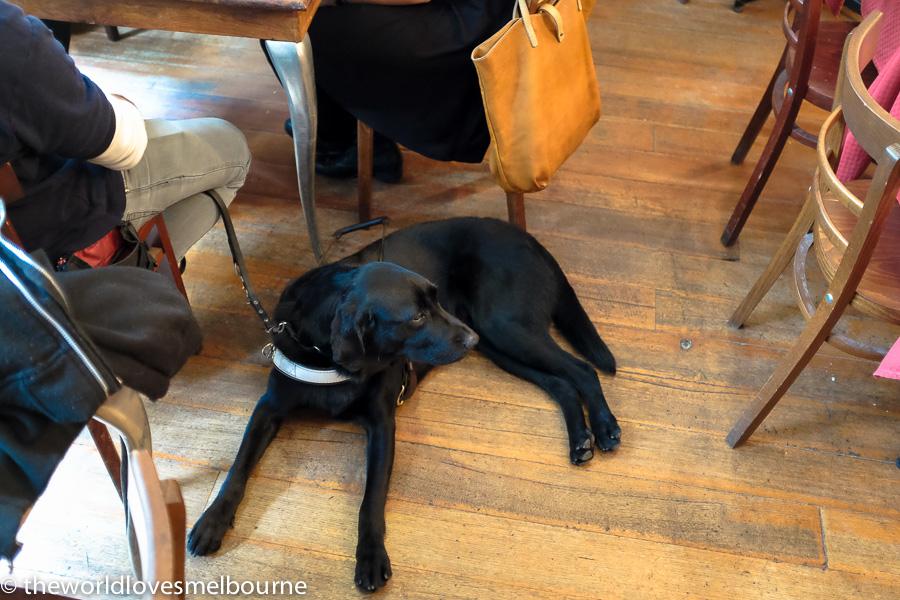
Warren chillin on the floor, possibly wanting the pasta menu...
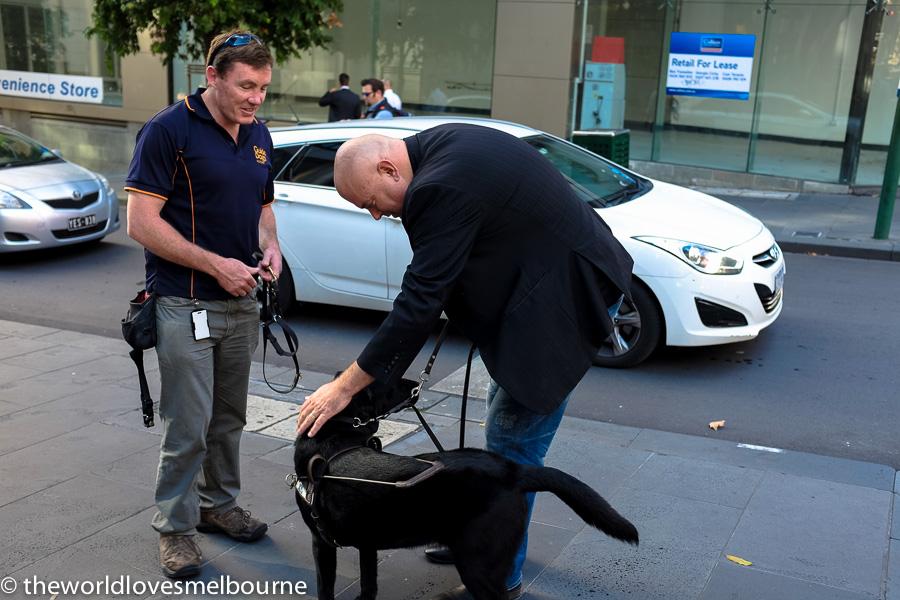
We received our instructions from Eddie. He told me to hold the handle and leash level with my side and be led by the handle, keeping it straight. "Follow the handle", he said. I then placed the blindfold on to experience something of blindness. We were listening intently for cars as we set off! Additional risks around access includes super quiet vehicles because you’re relying on your hearing so heavily.
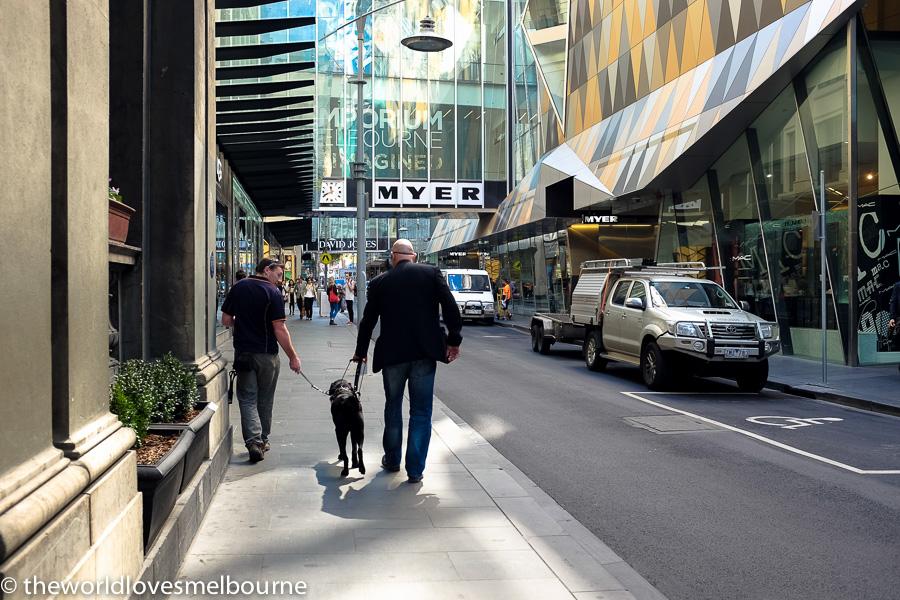
It was mostly a smooth walk but I was nervous. You are trusting so much in the skills of the Guide Dog! He was leading me straight but also left and right to get around obstacles and passers by. I felt the brush on my shoulder of bustling pedestrians.
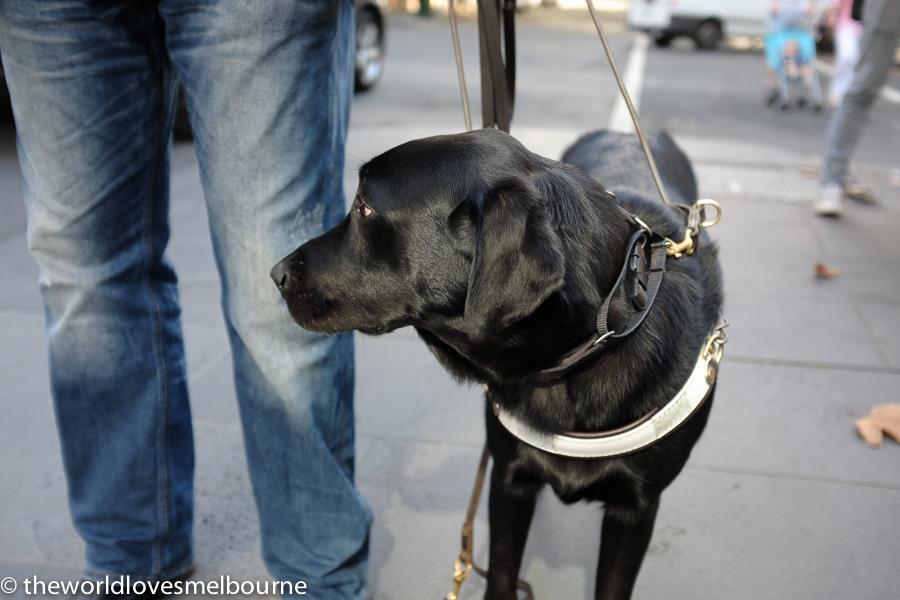
Warren looking a tad bewildered as we were a new entity for him. "What's going on?" he's wondering.
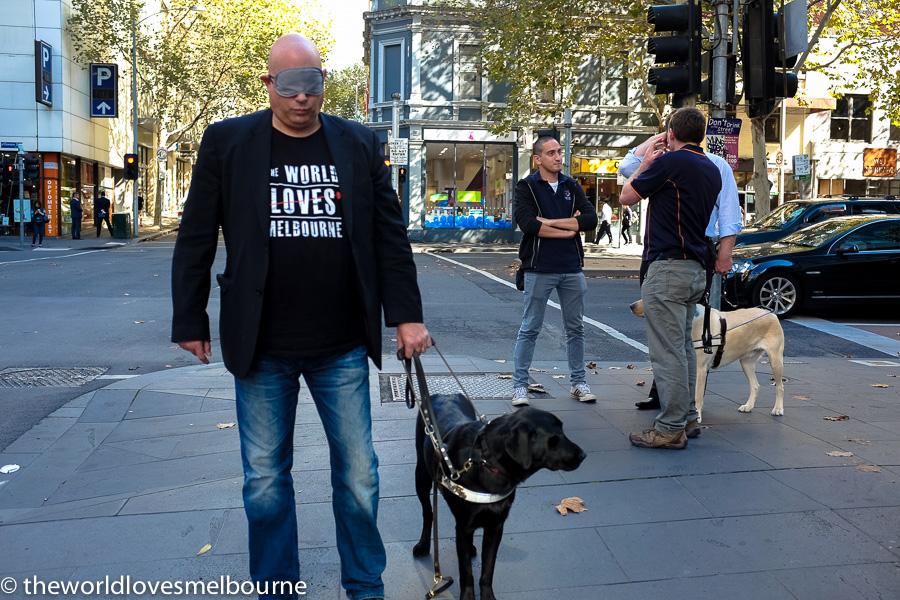
Our skills improved during the journey. You have a new respect for the visually impaired in the city. Access is so critical.
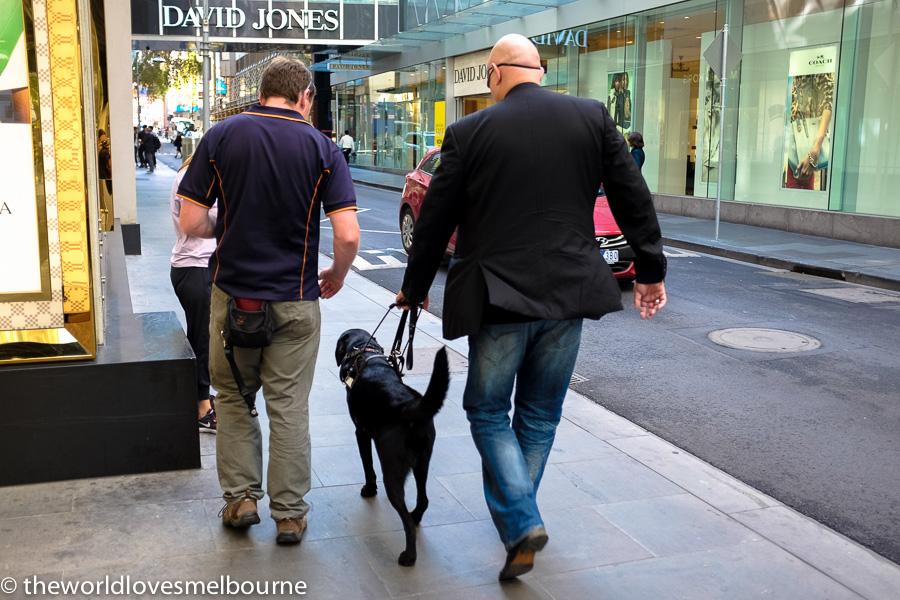
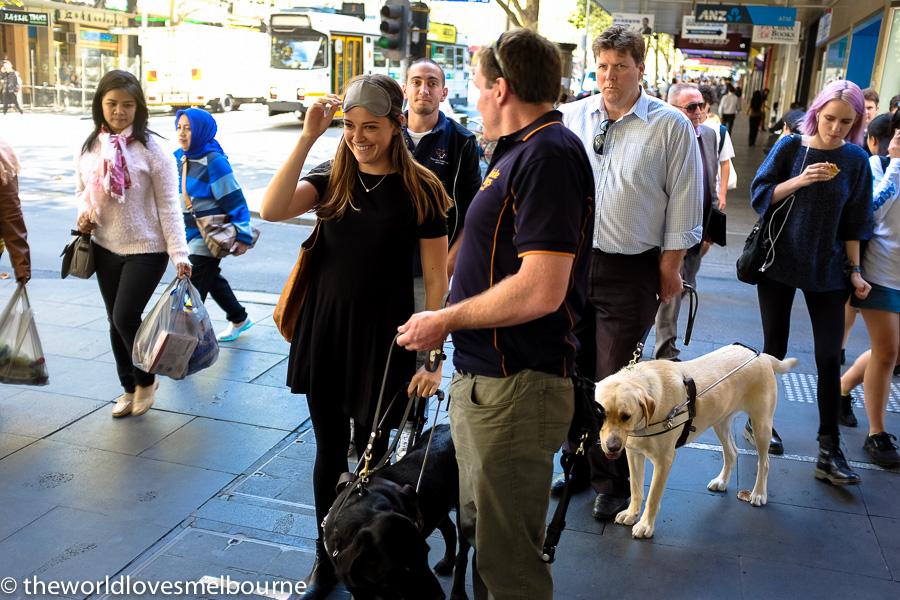
Georgia from Keep Left also had a stint with the blindfold and Warren. She was extremely proficient.
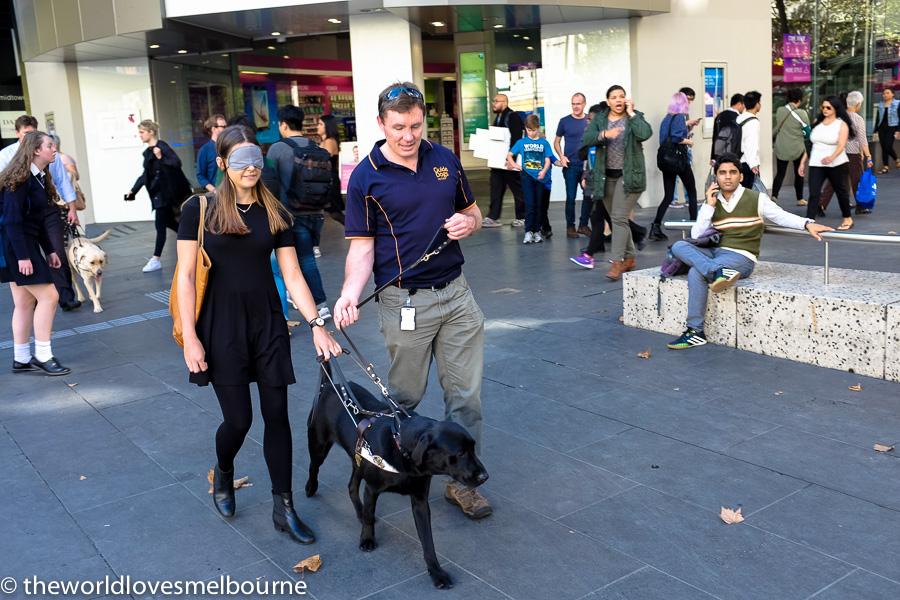
At the end of the journey back at The Town Hall we gave Warren a well earned treat biscuit. What an experience!
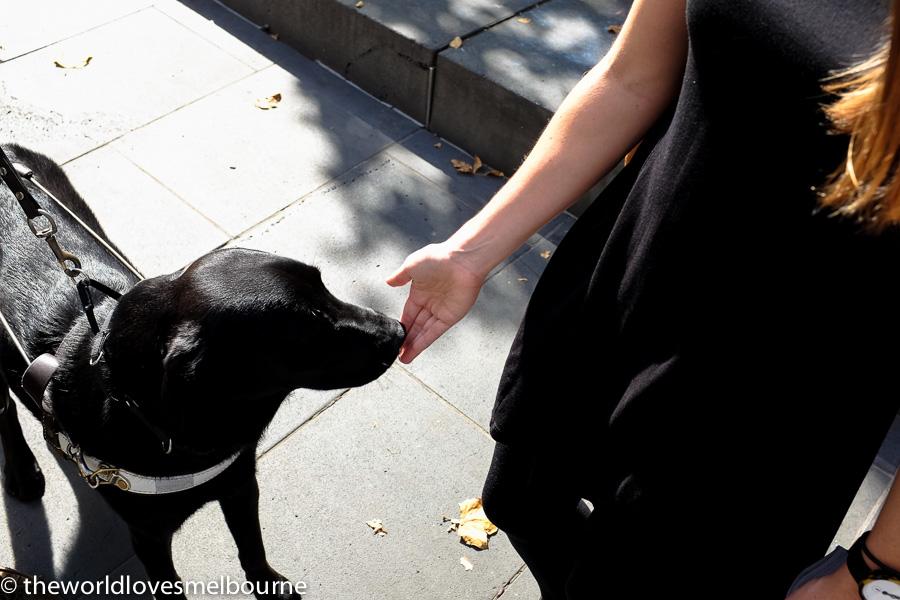
As we were leaving the dogs were approached by members of the public keen to pat them. it sounds cute but these dogs are meant to be working when harnassed and patting by the public is a distraction. David was kind enough to remove Oliver's harness so the public could pat him.
The World Loves Melbourne walked away from a significant session for us and a new appreciation of accessibility challenges faced by the visually impaired.
